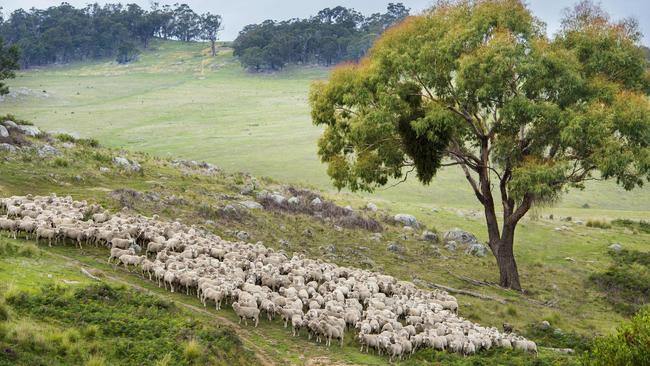Carbon farming: Expert weighs up if earning carbon credits is worth it
Is carbon farming worth the price? One expert analyses the cost-benefit of the system which earns farmers profit from carbon credits.

Soil carbon farming may not be as profitable as some think says one expert following new research.
With carbon credits currently valued at $16 a tonne — a long way short of the European market — farmers interested in engaging with the government’s carbon credits initiative to offset greenhouse gas emissions should ask themselves if the change in management is worth the potential profit to be made.
Emeritus Professor of soil science at the University of Melbourne Robert White said farmers need to realistically calculate their opportunity cost of significantly changing their system management to earn carbon credits as a main driver of profitability.
“The various aggregators in the (carbon farming) market are selling the idea that farmers can make money fairly cheaply out of farming soil carbon,” Prof White said.
In his recent research paper Prof White identified that most of the information market aggregators highlight is exaggerated in terms of the amount of carbon which can be stored.
“There is also quite a difficult pathway to satisfying the clean energy regulator as to whether a project is acceptable or not and there are some significant disincentives by way of the cost of measurement and the aggregators themselves,” he said.
Prof White said the main factor to consider is whether the change in management leads to a farmer actually earning morning from the production system itself.
“Even though there may be a small income from the carbon credits themselves, the effect on the productivity and profitability of the overall farming system we found is probably negative,” he said.
Farm management changes to store or offset carbon emissions include sustainable intensification such as new irrigation, fertilisers or liming as well as changes in the pasture management itself. Conversion of grassland into cropland and various other practices like using allowable organic amendments like biochar are also options to accumulate carbon and earn credits.
As most of the carbon storing projects lock farmers into a management style for a 25-year period, Prof White said landowners need to be “fairly sure that you’re going to accumulate considerable amounts of carbon to earn a significant sum” from the carbon credit payments.
“If the value of a carbon credit rose up to something like the European value which currently is about 60 euros per tonne of carbon dioxide, then the equation may change,” he said.
Prof White will present at the Grasslands Society of South Australia virtual conference starting today.
MORE
TASMANIAN FARM BECOMES CARBON-POSITIVE


